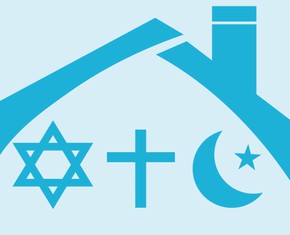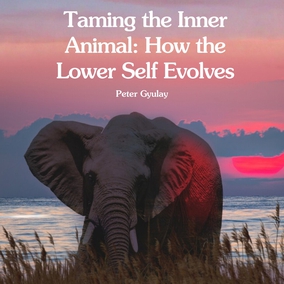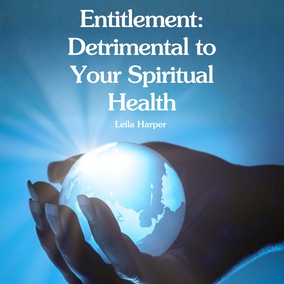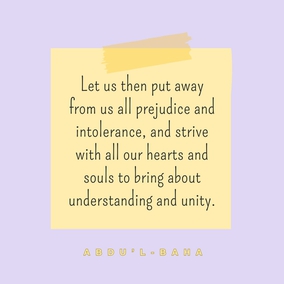The views expressed in our content reflect individual perspectives and do not represent the authoritative views of the Baha'i Faith.
Did you earn your money, or did someone give it to you? The economic teachings of the Baha’i Faith offer us a spiritual answer to that question.
Inherited wealth creates significant problems in society, including the accumulation of vast resources by a small number of people, and the Baha’i teachings have a remedy. First, Baha’is believe, work is worship—which means that there should be no “idle rich” who do not contribute to society:
It is enjoined upon every one of you to engage in some form of occupation, such as crafts, trades and the like. We have graciously exalted your engagement in such work to the rank of worship unto God, the True One. Ponder ye in your hearts the grace and the blessings of God and render thanks unto Him at eventide and at dawn. Waste not your time in idleness and sloth. Occupy yourselves with that which profiteth yourselves and others. Thus hath it been decreed in this Tablet from whose horizon the day-star of wisdom and utterance shineth resplendent. – Baha’u’llah, Tablets of Baha’u’llah, p. 26.
Every individual, no matter how handicapped and limited he may be, is under the obligation of engaging in some work or profession, for work, specially when performed in the spirit of service, is according to Baha’u’llah a form of worship. It has not only a utilitarian purpose, but has a value in itself, because it draws us nearer to God, and enables us to better grasp His purpose for us in this world. It is obvious, therefore, that the inheritance of wealth cannot make anyone immune from daily work. – Shoghi Effendi, Principles of Baha’i Administration, pp. 12-13.
This essential Baha’i principle is accompanied by an entire set of teachings regarding inheritance and recommending how the accumulated wealth of individuals should be transferred upon their passing. Those teachings help prevent the transference of a wealthy family’s vast fortunes from one generation to the next. Without listing all of these teachings in detail, two specific provisions summarize their intent—first, Baha’is believe that everyone should have a written will:
… the question of the will is of extreme importance: everyone should devote the most serious attention to drawing up a will, so that there should be no one who doth not have a will. – Abdu’l-Baha, quoted by The Universal House of Justice, July 1996, Wills, Applicable Laws, Inheritance, p. 3.
Second, Baha’i laws give full freedom to everyone to distribute their resources and possessions as they see fit. However, the Baha’i teachings recommend that a significant portion of each estate go to a central authority (for Baha’is, that is the democratically-elected Universal House of Justice) to benefit the world’s poor:
Man reacheth perfection through good deeds, voluntarily performed, not through good deeds the doing of which was forced upon him. And sharing is a personally chosen righteous act: that is, the rich should extend assistance to the poor, they should expend their substance for the poor, but of their own free will, and not because the poor have gained this end by force. – Abdu’l-Baha, Selections from the Writings of Abdu’l-Baha, p. 115.
In future a manufacturer will not be allowed to leave all his property to his own family. A law will be made something like this—that he must leave one-quarter only of his property to his family, and the other three-quarters must go to the factory workers who have created his wealth. – Abdu’l-Baha, Star of the West, Volume 5, p. 11.
Lately many prominent economists have actually paid much more attention to the proven reality behind these principles, concluding that the ongoing accumulation of capital by the very wealthy, especially when it is transferred in full from one generation to the next, tends to create a greater and greater gap between the rich and the poor:
When the rate of return on capital significantly exceeds the growth rate of the economy (as it did through much of history until the nineteenth century and as is likely to be the case again in the twenty-first century), then it logically follows that inherited wealth grows faster than output and income. – Thomas Piketty, Capital in the Twenty-First Century, p. 1.
When we concentrate inherited capital in the hands of one small upper economic class of people and the return on that capital remains high, the wealth becomes self-perpetuating. As the old saying goes, the rich get richer—much richer—and that creates a society unjustly dominated by those who inherit their wealth and use it to influence the course of history. From a Baha’i perspective, society must make laws and, more importantly, each individual must adopt a spiritual outlook, that prevents the hoarding of great fortunes:
The law of God exacts that there should be neither excessive wealth nor, excessive poverty. – Abdu’l-Baha, Star of the West, Volume 9, p. 706.
When Baha’u’llah wrote to the kings and rulers of the world in 1867 and 1868, he gave advice about this important subject to those rulers:
Overstep not the bounds of moderation, and deal justly with them that serve thee. Bestow upon them according to their needs, and not to the extent that will enable them to lay up riches for themselves, to deck their persons, to embellish their homes, to acquire the things that are of no benefit unto them, and to be numbered with the extravagant. Deal with them with undeviating justice, so that none among them may either suffer want, or be pampered with luxuries. This is but manifest justice.
Allow not the abject to rule over and dominate them who are noble and worthy of honour, and suffer not the high-minded to be at the mercy of the contemptible and worthless …. This ill beseemeth thy sovereignty, and is unworthy of thy rank. – Baha’u’llah, The Summons of the Lord of Hosts, pp. 212-213.
The Baha’i Faith recommends effectively splitting the entire estate of the person who has passed on among a large group of people: children, spouse, fathers and mothers, brothers and sisters, and finally teachers, plus a central storehouse dedicated to serving the needs of society’s less fortunate members. This spreads the wealth and makes the ongoing concentration of riches in the hands of a few much less likely.
This kind of wider, voluntary distribution among many gives opportunities to those who never had them before; helps fairly and equitably distribute and break up large generational concentrations of inherited wealth; and also suggests allocating a share of the total inheritance to a general storehouse of funds for the poor, the orphaned and the widowed. In this way, the Baha’i teachings create a pathway to a much more balanced and equitable future society.
You May Also Like
Comments

















benefits!